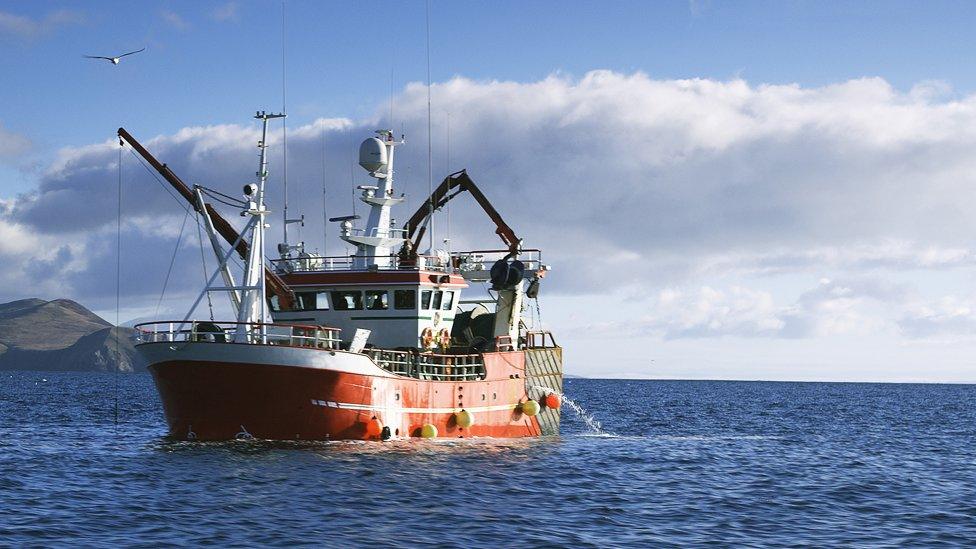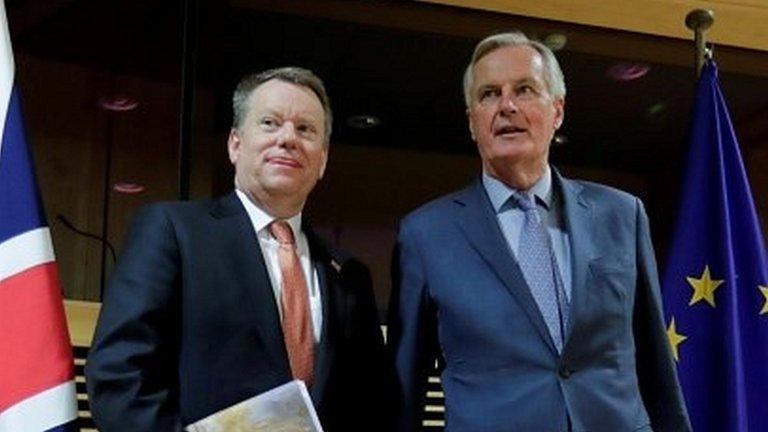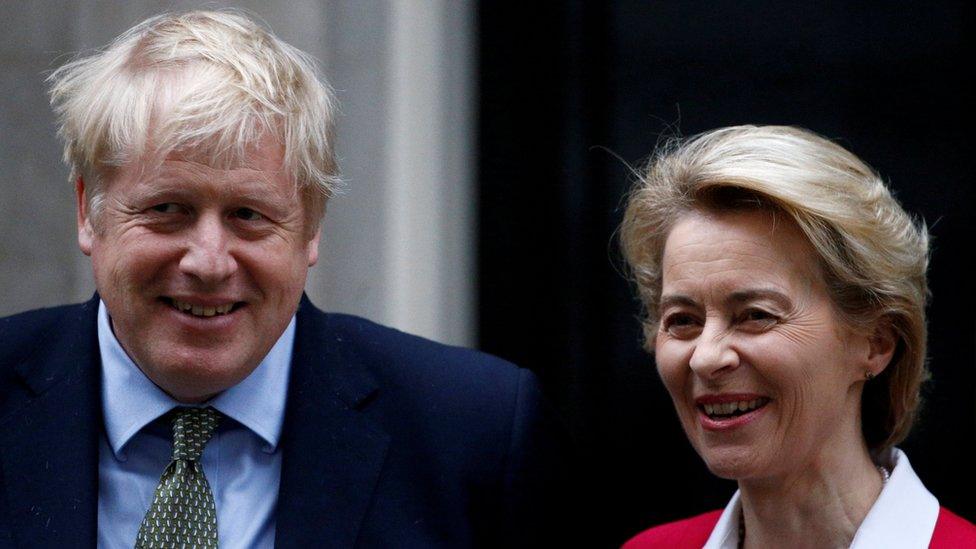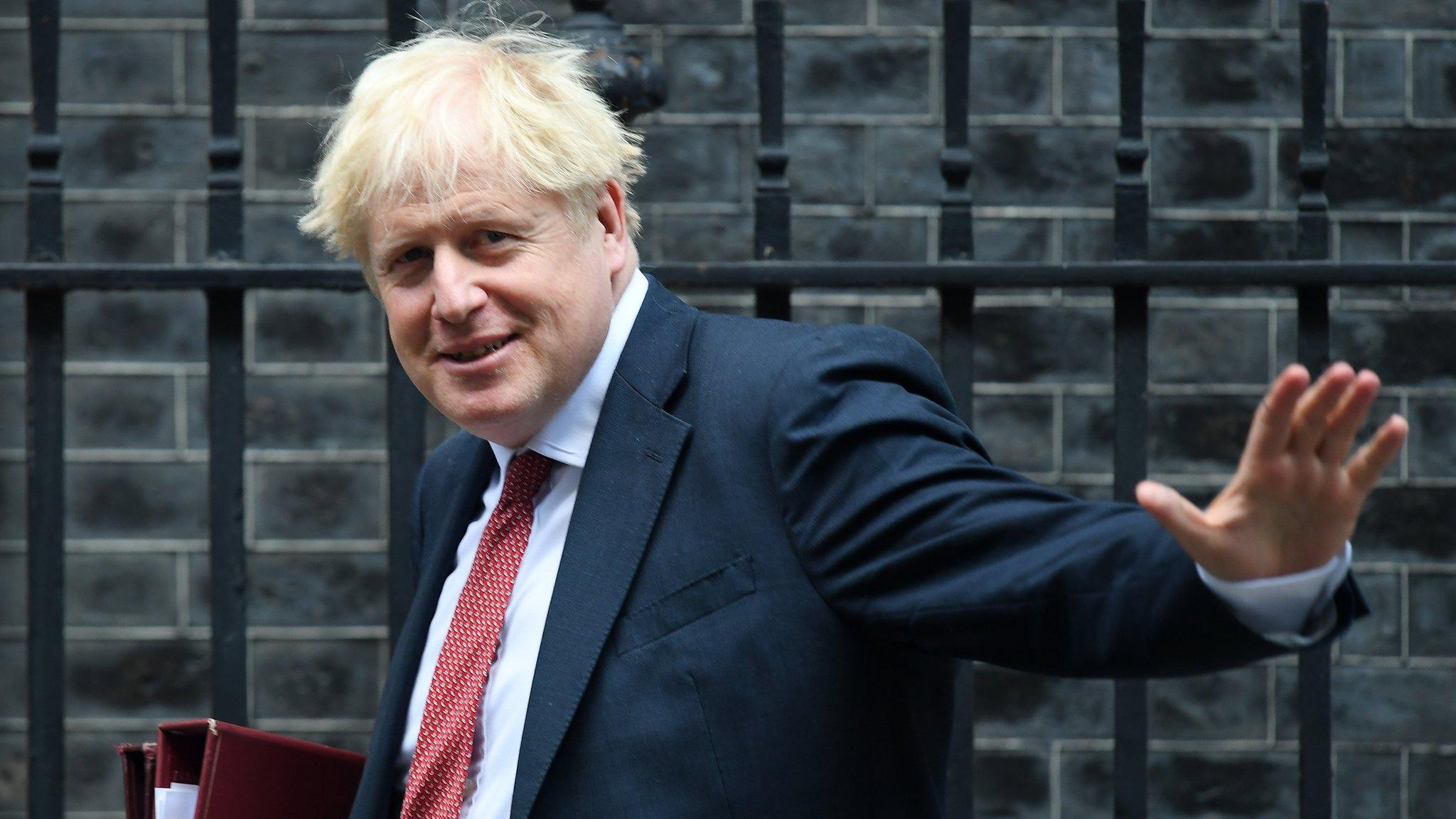Brexit: Boris Johnson calls Emmanuel Macron as deadline looms
- Published

Fishing remains one of the key sticking points of negotiations
Boris Johnson has told the French president the UK wants to "explore every avenue" to secure a post-Brexit trade deal with the EU, days before the PM's self-imposed deadline.
Mr Johnson told Emmanuel Macron "intensive talks" were needed to "bridge significant gaps" remaining across the negotiating table.
A disagreement over fishing has been one major sticking point of talks.
Informal discussions will continue in Brussels next week.
The UK left the EU on 31 January and entered a transition period until the end of the year - with all the rules, regulations and budget payments staying the same until then.
Both sides are now trying to negotiate a trade deal - which would decide, among other things, the tariffs (taxes) applied when buying and selling each other's goods.
A No 10 spokesman said in the call on Saturday, Mr Johnson "confirmed the UK's commitment to exploring every avenue to reach an agreement".
"He underlined that a deal was better for both sides, but also that the UK was prepared to end the transition period on Australia-style terms if an agreement could not be found," the spokesman added.
An "Australia-style" agreement means trading on World Trade Organization terms, with no specific free trade deal.
It comes after Downing Street said the latest round of discussions between chief negotiators Michel Barnier and Lord Frost, in London, had been "useful".
What is the UK's Brexit 'deadline'?
One thing that both sides have agreed on is that a deal needs to be struck in October to ensure sufficient time for ratification, before the end of the transition period.
But negotiators are unlikely to get until the end of the month.
Mr Johnson has previously said he wants to agree a free trade deal by the time of an EU summit in the Belgian capital - which is next week, on Thursday 15 October.
Mr Johnson has said the two sides should "move on" if nothing is agreed by then.
What have been the main sticking points?
The No 10 spokesman said that during the phone call, "the prime minister emphasised that progress must be made in the coming days to bridge the significant gaps, notably in the areas of fisheries and the level playing field".
The issue of fishing is one that has cropped up time and again throughout talks. The UK wants full access to EU markets to sell its fish, but in return the EU wants full access for its fishing fleets to UK waters - which the UK does not want to provide.
The "level playing field" is the idea that there should be measures in place to ensure businesses on one side of the deal do not have an unfair advantage over their competitors on the other side.
All trade agreements have such measures, but the EU wants the UK to stick particularly closely to EU rules on things like workers' rights, environmental regulations and particularly state aid - that is, financial assistance given by government to businesses.
The UK, on the other hand, says the whole point of Brexit was to break free from following common rules.
What happens if there's no trade deal?
If no deal is reached, the UK and EU would do business under World Trade Organization rules, which would mean tariffs on goods.
The UK government has started referring to this outcome as an "Australia-style deal" because it would mean the UK trading with the EU in roughly the same way Australia does.
But, as our Reality Check correspondent Chris Morris points out, it is important to consider geography.
Australia is on the other side of the world, so does not rely on the EU for the operation of just-in-time supply chains in sectors such as cars, pharmaceuticals and food.
Border checks and delays therefore have far less impact on EU-Australia trade than they would on EU-UK trade.
In other words, going to WTO rules for trade with the EU - without any other deals in place - would be a huge change.
- Published9 October 2020

- Published3 October 2020

- Published7 September 2020
